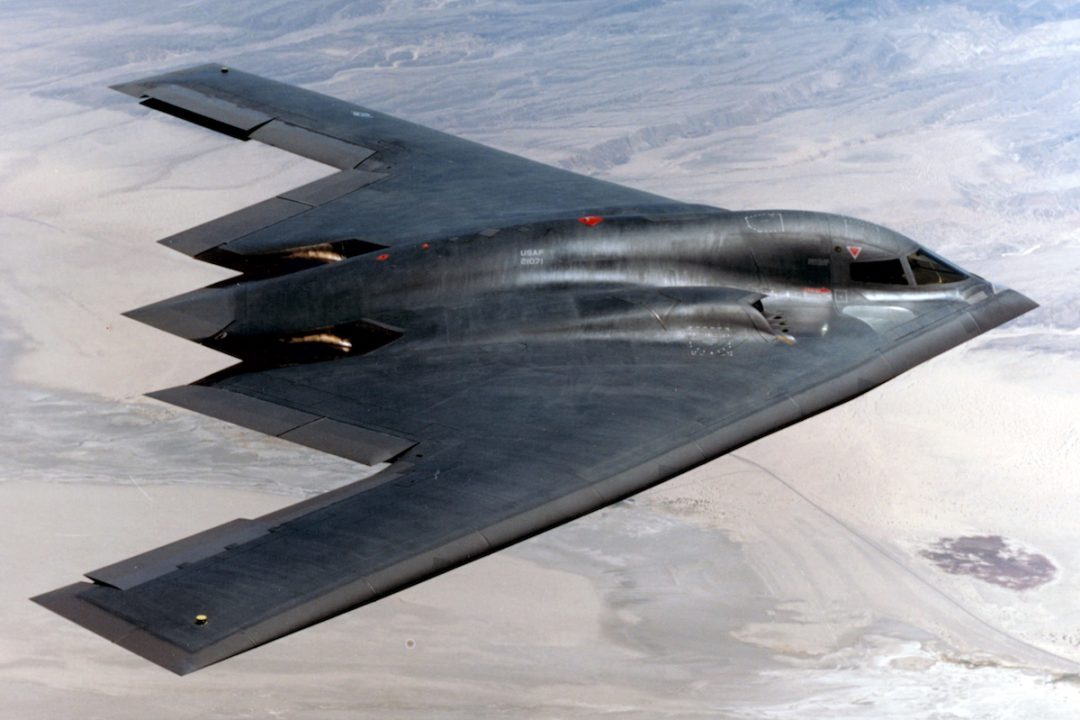
Israel’s devastating June 13 attack on Iran surprised the world. Not because it happened, but because of when it happened. President Donald Trump’s decision to bomb Iran a week later caught the world off guard as well — also because of when it happened rather than that it happened.
Trump floated the idea of striking Iranian nuclear sites multiple times over a span of a few days. But he said he would decide within two weeks. Two days later, American B-2 stealth bombers flew into Iranian airspace, dropped 14 bunker-busting bombs — each weighting 30,000 pounds — on three nuclear enrichment sites in Iran, and zipped back home.
Ceasefire
But perhaps most shocking was Trump’s announcement on Monday. Suddenly, seemingly out of nowhere, he declared the war over. He even christened it with a catchy name, the “12 Day War,” not as short as another war the Israelis were involved in (the Six-Day War), but short nonetheless.
Not everyone welcomed the news. Fox’s Mark Levin, for example, did not. He suspects Iran’s nuclear program survived, a sentiment that grew wings Tuesday after legacy media outlets spread far and wide news of an intelligence leak making the same claim.
Levin’s media archenemy, Tucker Carlson, had the opposite reaction. His team stamped Tuesday’s daily morning newsletter with the subject line, “Thank God Donald Trump brokered a ceasefire. That’s the last thing Mark Levin wanted.” After the leak, he sent out another email in the afternoon, claiming the Deep State will stop at nothing to provoke a war.
The world learned of the ceasefire after the president announced it on his Truth Social account Monday evening. “It has been fully agreed by and between Israel and Iran that there will be a Complete and Total CEASEFIRE,” he decreed. The announcement was so out of the blue that, according to some reports, it “caught even some of Mr. Trump’s own top administration officials by surprise.”
Frustrated Plans
Over the next few hours, it looked as though the two warring countries were reluctant to oblige the American president. Israel and Iran were still lobbing missiles and bombs at each other. The Guardian reported:
Donald Trump has declared a ceasefire intended to bring an end to a 12-day war between Israel and Iran, but despite public acceptance of the truce, both sides continued to exchange fire on Tuesday morning. Air raid sirens sounded in northern Israel at about 10.30am, in response to what the Israeli military said was an Iranian missile launch, about two and a half hours after the ceasefire was first announced. Israeli reports said two missiles had been intercepted. Iran denied launching missiles after the ceasefire but Israel’s defence minister, Israel Katz, said he had ordered immediate retaliation on Tehran.
This made Trump angry. He expressed his dissatisfaction with a rare public use of the “f-word” when talking to reporters. “They don’t know what the f- they’re doing,” he bawled. Trump aired further frustration to the media, specifically aimed at Israel. He said, “Israel, as soon as we made the deal, they came out and they dropped a load of bombs, the likes of which I’ve never seen before, the biggest load that we’ve seen.” The Guardian was somehow able to measure Trump’s scolding as “the strongest-worded public rebuke of Israel of any US president in history.”
Trump then told the Israelis, as a stern father would a child, to knock it off. He posted on his Truth Social account in all caps: “ISRAEL. DO NOT DROP THOSE BOMBS. IF YOU DO IT IS A MAJOR VIOLATION. BRING YOUR PILOTS HOME, NOW!” And, apparently, Israel listened.
The Jerusalem Post corroborated that Trump indeed read Prime Minister Benjamin Netanyahu the riot act. Israeli fighter jets were just minutes away from hitting 20 Iranian targets when Trump got on a call with Netanyahu and told him to put a lid on it. According to the report:
A source familiar with the details told The Jerusalem Post that Trump raised his voice at the prime minister, demanding, “Stop the attack.” The source noted that Netanyahu managed to say little during the call, though he repeatedly expressed gratitude to the US President. The source said, “It was a tough conversation between Netanyahu and President Trump. Trump viewed this as a personal achievement, and made it clear that no one — absolutely no one — would undermine it.”
The pilots pulled back on the attack and hit a radar station near Tehran as a compromise.
Problem Solved
Shortly afterward, Trump issued another update. This one informed the world that everyone will now behave. “ISRAEL is not going to attack Iran. All planes will turn around and head home, while doing a friendly “Plane Wave” to Iran. Nobody will be hurt, the Ceasefire is in effect! Thank you for your attention to this matter! DONALD J. TRUMP, PRESIDENT OF THE UNITED STATES,” Trump wrote.
By late Tuesday morning in the United States, it was beginning to look as if Trump’s peace “imposition” was starting to become reality. The Wall Street Journal reported:
Iran’s foreign minister later said his country would halt firing if Israel stopped its attacks. Israel confirmed the cease-fire on Tuesday morning, saying its war aims had been achieved.
In another round of Middle Eastern kabuki theater designed to preserve national pride, Iran’s foreign minister announced on state TV that Iran had fought until the very last minute.
The Times claimed to have spoken to three diplomats familiar with how the ceasefire came about. And based on that report, the world owes the Qataris a pat on the back for helping the Americans mediate peace:
Qatar intervened on behalf of the Trump administration and persuaded Iran to agree to a cease-fire with Israel.… The three diplomats said that Mr. Trump had told Sheikh Tamim bin Hamad Al Thani, the emir of Qatar, that Israel had signed off on an American cease-fire proposal. They added that the president had asked that Qatar help bring Iran on board. The Qatari prime minister, Sheikh Mohammed bin Abdulrahman Al Thani, then persuaded Iran to agree to the proposal in a call with the Iranian leadership, the diplomats said.
What was accomplished?
Nuclear Program “Obliterated”
According to Vice President J.D. Vance during an appearance on Fox with Bret Baier just moments after Trump’s announcement, the president “obliterated the Iranian nuclear program.” Vance added that Iran won’t be able to build a nuclear weapon because their equipment was destroyed. But he said there’s more work to be done to keep Iran from rebuilding the program. He said U.S. officials are going to have to talk to the Iranians to work that out.
Baier pressed Vance on whether Iran’s nuclear program was truly destroyed. “Do you know for sure where all the highly enriched uranium is?” a skeptical Baier asked. Vance responded:
I think that’s actually not the question before us. The question before us is, Can Iran enrich the uranium to weapons-grade level, and can they convert that fuel to a nuclear weapon? And we know … that the two mission objectives are completely successful. We know that they cannot build a nuclear weapon.
Vance added that a U.S. goal was to bury the uranium, which, he specified, was achieved. He concluded that, ultimately, Iran will be unable to further enrich uranium. They will not be able to cover the gap from the 60 percent enrichment they’re rumored to have achieved to the roughly 90-percent level needed to create weapons.
Peace in the Middle East
The American goal, Vance continued, was to give the world the present of a non-nuclear-armed Iran. The vice president also twisted the knife a bit, pointing out that the world now knows the Iranians “are just not very good at war.” Vance finished off by putting a nice bow on the saga: He said this was reset moment for the region, the beginning of “peace in the Middle East.”
Netanyahu, in a televised speech, took a victory lap as well. He said:
We eliminated many senior officials and attacked Revolutionary Guard bases. We struck a decisive blow to the Ayatollah regime, marking the hardest blow in its history. We eliminated hundreds of regime operatives in a crushing attack. I thank President Trump for his unwavering support.
The prime minister tucked in his celebratory speech a warning to the Iranians, promising that Israel will strike again if they suspect Iran of rebuilding their nuclear program.
Not So Fast
If certain reports prove to be reliable, that day may not be too far in the future. According to the state-controlled media outlet Tehran Times, the American strike on the three nuclear sites wasn’t as much a surprise as the Americans touted it to be:
Iran managed to relocate its enriched uranium stored at Fordow to a secure location before the American strike. Satellite imagery, expert analysis, and statements from Iranian authorities indicate that the vast majority of Iran’s underground facilities remain intact, although some surface damage was sustained. If Iran decides to pursue nuclear weapons in the future, it would almost certainly be a direct result of the Israeli-American war imposed upon it while diplomatic efforts were underway.
Israeli and Western media reports echo this point. On Tuesday, several outlets reported that the head of Iran’s Atomic Energy Organization, Mohammad Eslami, told the state-controlled Mehr news agency that Iran has already made arrangements to restore its nuclear program. He said, “We planned to avoid any interruption in the nuclear industry process. Preparations for the revival [of the country’s nuclear program] were foreseen in advance, and our plan is to not allow any interruption in the production and service process.”
Intel Leak
On Tuesday, U.S. media began pushing news of a U.S. intelligence leak that claims, based on an early assessment, that the American strikes on Iran’s nuclear sites only set their program back months, not years, contradicting the Trump administration’s claim that it had been “obliterated.” CNN reported it first, after which it was picked up by several legacy media outlets.
By Tuesday evening, the White House was making the media rounds working to dispel the veracity of this report. White House press secretary Karoline Leavitt said, “This alleged assessment is flat-out wrong and was classified as ‘top secret’ but was still leaked to CNN by an anonymous, low-level loser in the intelligence community.”
Claims Denied
Trump’s special envoy to the Middle East, Steve Witkoff, called the report “completely preposterous.” He described to Fox’s Laura Ingraham why the intel leak was false. Witkoff said he read all the damage assessments reports, not just those issued by the U.S. government. He reiterated that the United States hit three nuclear facilities, the ones in Isfahan, Natanz, and Fordow. Regarding Isfahan, that was an above-ground conversion facility. “You cannot weaponize unless you have what’s called the conversion process at the beginning of enrichment and then a conversion process to ‘metalisize’ the material at the end of enrichment,” Witkoff said. He added that was the only facility, as far they knew, capable of carrying out the conversion process — and it was “completely destroyed.” So, Witkoff, summarized, without the conversion ability, they can’t weaponize — “even if they’ve enriched to 90 percent.”
Witkoff then said that the two nuclear reactors in Natanz, one which was below ground, have been “eviscerated.”
As for the Fordow facility, the one tucked under a mountain, Witkoff said:
We put 12 bunker buster bombs on Fordow. There’s no doubt that it breached the canopy. There’s no doubt it was well within reach of the depth that these bunker buster bombs go to — and there’s no doubt that it was obliterated.
For what it’s worth, the head of the International Atomic Energy Agency (IAEA), Director-General Rafael Grossi, has made comments indicating he believes the facilities were badly damaged. But he was cautious, saying that an on-the-ground assessment will need to be conducted to truly gauge what happened.
Wait and See
What happens now?
Aside from the phased ceasefire and mutual compliance, there appears to be no further detail on the agreement between the Israelis and Iranians. According to Witkoff, the Iranians will not be allowed to enrich at all. That already sounds like trouble.
The mistrust and animosity between Israel and Iran will continue. And those who seek to undermine peace still have power. Time will tell.





